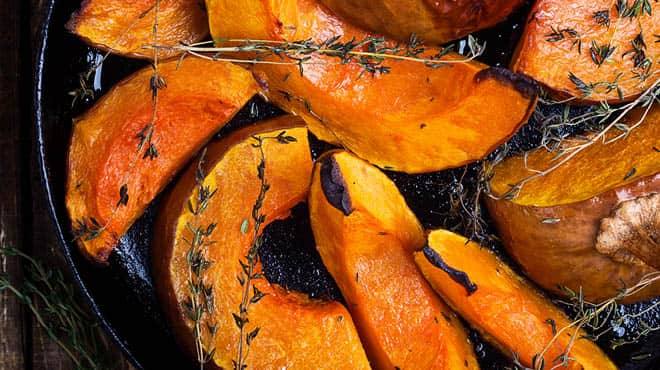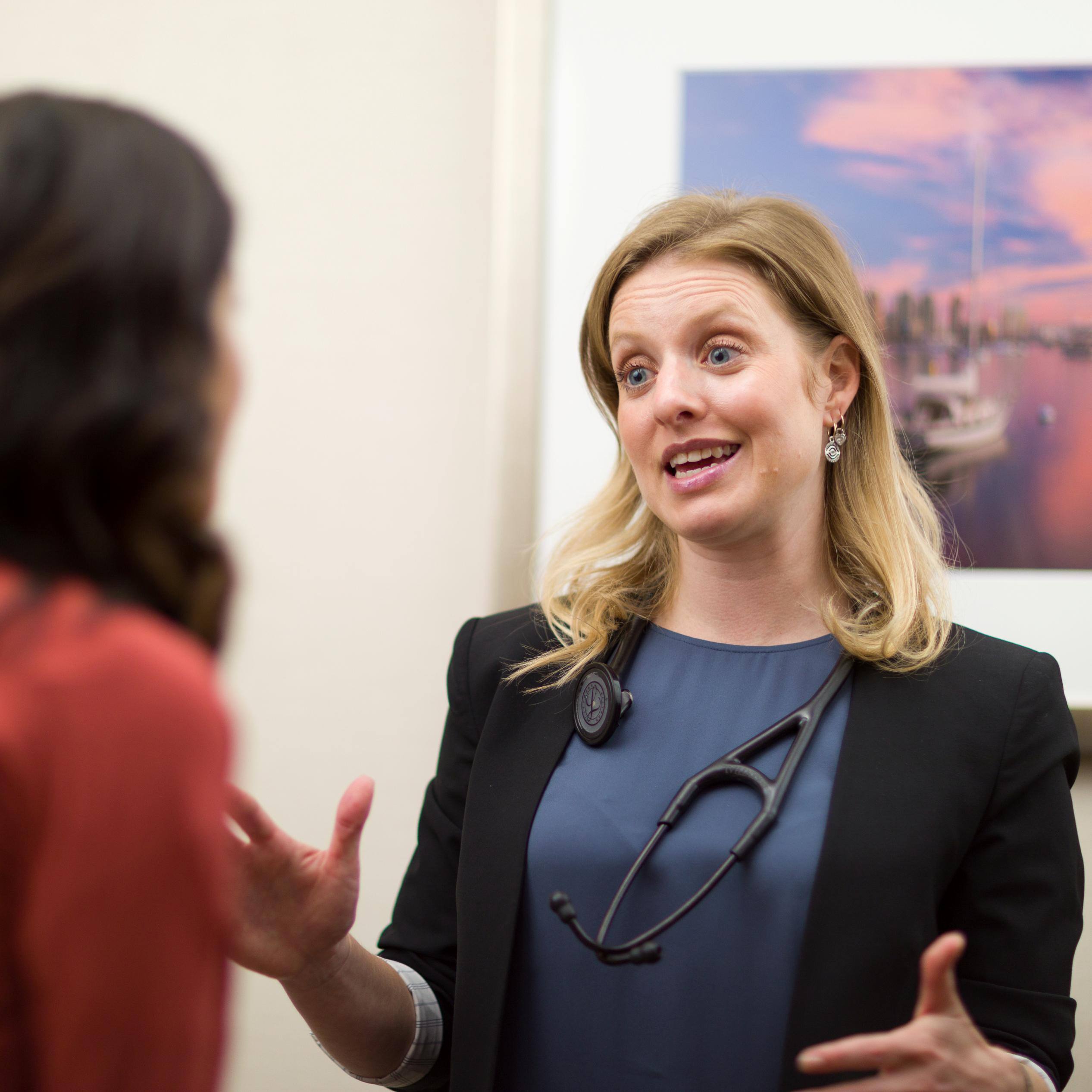-
Plant power: Using diet to lower cancer risk

The choices you make at the grocery store have a bigger impact than just your dinner plans. Filling your plate with foods that are grown in the ground may be the best diet for cancer prevention.
An estimated 1.9 million cases of cancer will be diagnosed in the U.S. in 2022, according to the American Cancer Society. While some people have a higher genetic risk to develop cancer, research shows that nearly 25% of overall cancer cases could be prevented with diet and nutrition alone. Many cancers can take 10 or more years to develop, so everyday nutrition choices are crucial in cancer prevention.
Plant-based diets are full of fruits, vegetables and legumes, with little or no meat or other animal products. In research studies, vegans, people who don't eat any animal products, including fish, dairy or eggs, appeared to have the lowest rates of cancer of any diet. The next lowest rate was for vegetarians, people who avoid meat but may eat fish or foods that come from animals, such as milk or eggs.
Plant-based foods do more than taste delicious. They are full of chemicals compounds, called phytochemicals, that protect the body from damage. Phytochemicals also interrupt processes in the body that encourage cancer production. Plant-based diets also are high in fiber, which has been shown to lower the risk for breast and colorectal cancer.
Plant chemicals
Phytochemicals offer many benefits. In addition to protecting from damage, they decrease inflammation and interrupt processes in the body that encourages cancer production.
Two of the most helpful phytochemicals are:
- Antioxidants
This type of phytochemical protects the body from damage. Cancer develops when DNA in cells is damaged. This causes abnormal cells to divide uncontrollably, which can infiltrate and destroy normal body tissue. Cell damage also can be caused by radiation, viruses and exposure to other chemicals. The body's natural metabolism creates oxidants that can cause cell damage, as well. Antioxidants neutralize these damage processes while protecting and restoring cells. Some foods that contain a high level of antioxidants include dark chocolate, apples with the peel, avocados, artichokes, red cabbage, tea, coffee, nuts and grains. - Carotenoids
These are fat-soluble compounds, which means they need to be accompanied by a fat source to be absorbed. Carotenoids are naturally present in many fruits, grains, oils and vegetables such as carrots, sweet potatoes, squash, spinach, apricots, green peppers and leafy greens. They are highly pigmented, so look for natural foods that are red, orange, yellow and green. Examples of carotenoids include beta carotene, lycopene, and lutein. They have been linked to reducing the risk of heart disease, cancer, macular degeneration and cataracts.
Many plant-based foods are also high in provitamins called alpha and gamma carotene. When consumed, these vitamins can be converted to vitamin A. This nutrient is important to vision, growth, cell division, reproduction and immunity. Vitamin A also has antioxidant properties.
Nutrients and phytochemicals found in plant-based foods seem to work independently and together to decrease cancer and disease risk. This means that plant-based foods work best when eaten in combination with other foods rather than alone. One prostate cancer study showed that a combination of tomato and broccoli diet was more effective at slowing tumor growth than either tomato or broccoli alone. This demonstrates the power that nutrition has when foods are teamed together.
Plant-based fiber
Plant-based diets are high in natural fiber. This has been shown to reduce cancer risk and moderate insulin levels. Young women who ate the most fiber-rich diets were 25% less likely to get breast cancer later in life, a study found. Other research finds that each 10 grams of daily fiber could lower the risk of colorectal cancer by 10%.
Healthy bacteria in the digestive track can ferment fiber and other starches to produce compounds known to help promote normal colon development and reduce inflammation. These bacteria convert some phytochemicals to more useable or active forms.
Eat for color, variety
There are many delicious options in a plant-based diet. Experiment with new fruits or vegetables, or new ways to incorporate staples.
Cost can be a factor in selecting a plant-based diet menu, as fresh fruits and vegetables may be more expensive. Good alternatives are frozen fruits and vegetables. They are flash-frozen to preserve nutrients and are less expensive. Canned options are available, as well, for people with a stricter budget. Be sure to look for options without added sugar or salt.
Aim to eat at least these amounts in your diet to feel full and get the necessary phytochemicals and fiber:
- Fruits, 1.5 to 2.5 cups per day
- Vegetables, 2.5 to 4 cups per day
- Whole grains, 3 to 5 ounces per day
- Legumes, 1.5 cups per week
- Protein, 5 to 7 ounces per day. Legumes, dairy, tofu and eggs are excellent sources of protein. Or select lean cuts of meats and avoid processed meats
- Fats, 3 to 5 servings per day. One serving equals one teaspoon of oil, four walnut halves or one-sixth of an avocado
Shifting to a plant-based diet
Eating a plant-based diet doesn't need to be all or nothing. Making gradual changes is more sustainable and realistic for most people. Some ways to do this include:
- Start your day off right.
Enjoy a delicious and healthy breakfast with whole-grain oatmeal, buckwheat or quinoa, along with fruit, to give you the energy to tackle your day. - Experiment with meatless meals.
Embrace "meatless Mondays" and try one new meatless recipe per week. - Treat meat like a condiment.
Instead of using meat as a main dish, use just a little for flavor. - Use legumes for bulk.
Decrease the amount of meat in some recipes by increasing the amount of beans, lentils or vegetables. These foods fill more space on your plate so you won't feel deprived. - Fill your plate with fruits and vegetables first.
Cover about half of your plate with fruits and vegetables for lunch and dinner.
More investigation of foods and their functional components is bound to reveal all that a plant-based diet has to offer. Until then, eating a variety of fruits and veggies prepared in numerous ways will improve your odds for preventing cancer. And don't forget to pair proper nutrition with plenty of exercise.
Grace Fjeldberg is dietitian in Nutrition in Mankato, Minnesota.
This article originally published on the blog of the Mayo Clinic Health System







